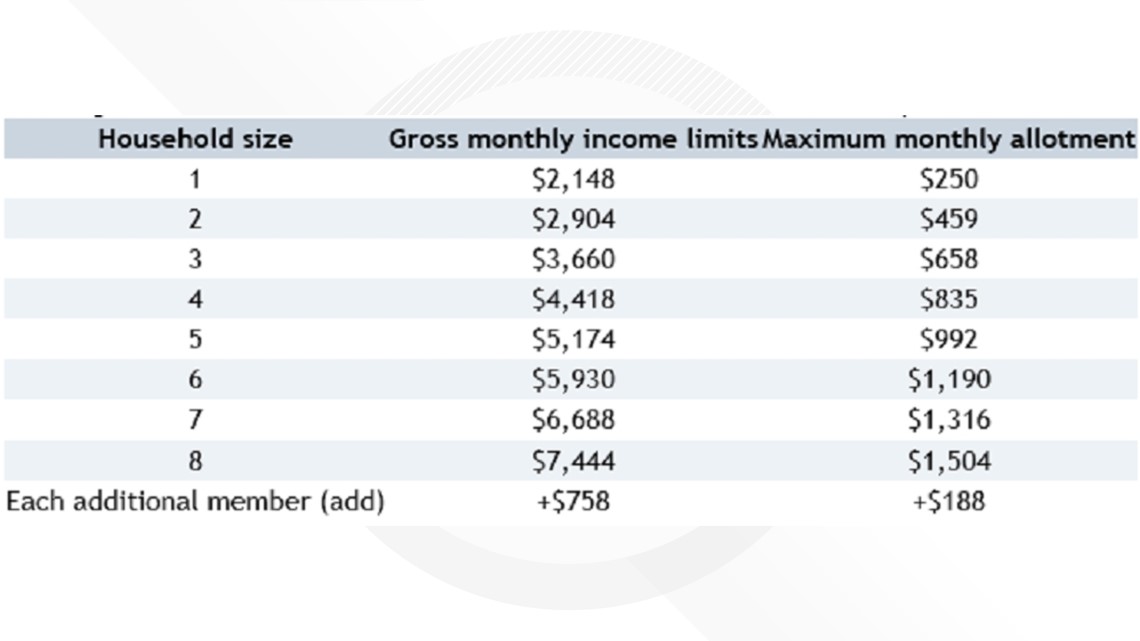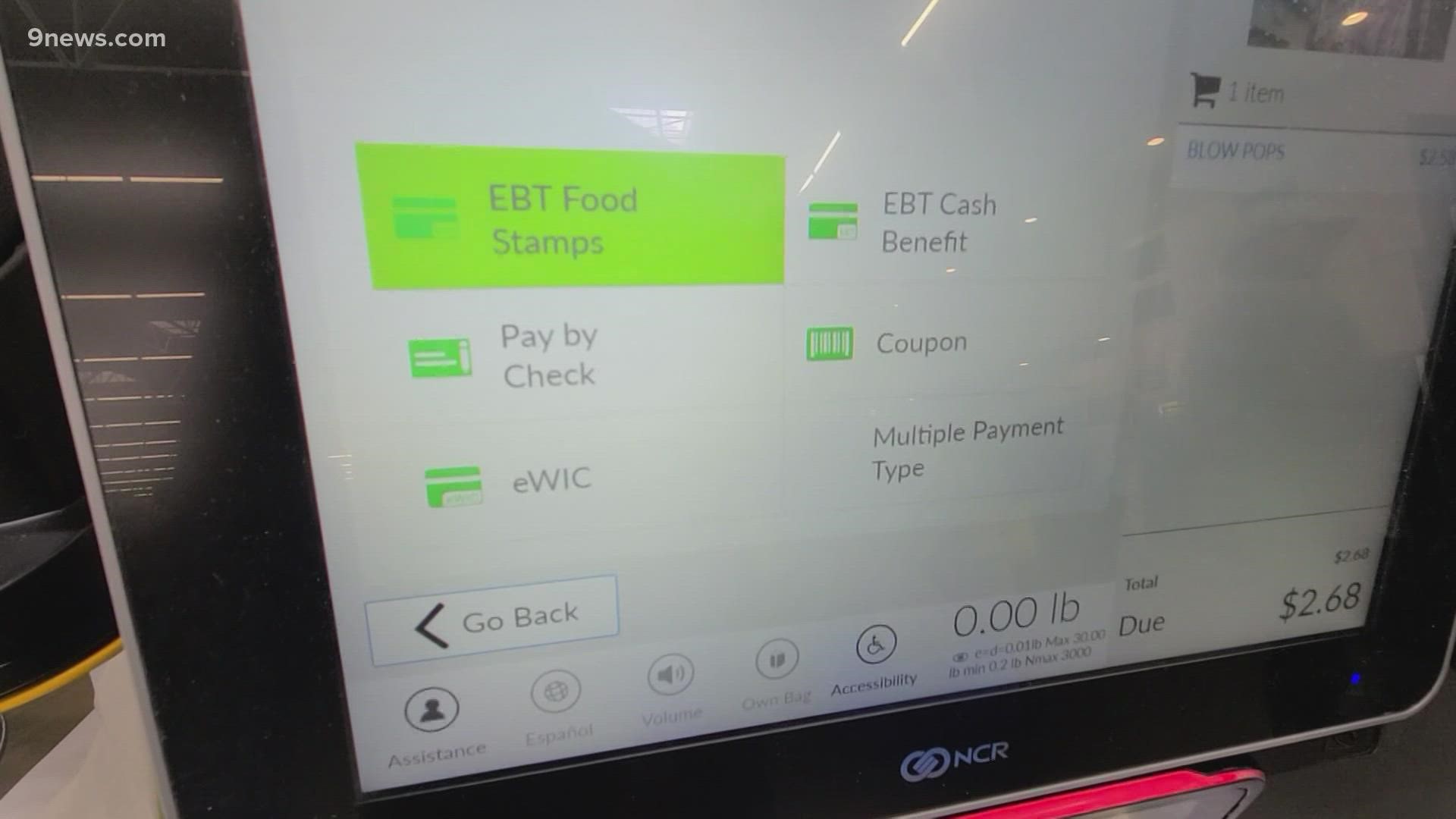DENVER — Mistakes happen.
But should you be held accountable for a mistake made in your favor without your knowledge?
A new report out by the Colorado Center for Law and Policy (CCLP) showed Colorado's 64 counties make mistakes when issuing food stamps through the Supplemental Nutrition Assistance Program (SNAP).
"It's actually mandated in our SNAP rules that any overpayments given to SNAP beneficiaries have to be paid back regardless of fault and regardless of reason," said Lyz Riley Sanders, policy advocate for CCLP.
The group reviewed thousands of pages of 2019 hearing decisions and data regarding the state's administration of SNAP benefits.
"The vast majority of overpayment claims are the result of agency error," said Riley Sanders.
She said the data showed Colorado counties make up two-thirds of overpayment errors.
"Whether they're miscalculating income or not processing the reports correctly, and that ultimately leads to overissuing of SNAP benefits," said Riley Sanders. "One of the things that we're calling for is that the state actually does further investigation to get to the bottom of what is causing this high rate of agency error."
In January 2022, the Colorado Department of Human Services (CDHS) reported that all 64 counties issued $126.9 million in SNAP benefits to more than 267,000 households.
"Its entire purpose is to help families, low-income families, purchase healthy food," said Riley Sanders.
To be eligible for SNAP benefits, income must be less than 200% of the Federal Poverty Level.


*Image courtesy: https://cdhs.colorado.gov/snap
"There is no expectation that SNAP beneficiaries do the calculations themselves," said Riley Sanders. "It would be unreasonable to think that they should."
When overpayments happen, the recipient is responsible for paying back the overage dating back one year, according to a CDHS spokesman. If there is fraud determined, the repayments can go back six years.
"In one particular case, agency error resulted in over $3,000 that was overissued to a beneficiary and they, ultimately, had to pay that back," said Riley Sanders. "There should be some sort of policy that does not penalize beneficiaries for the government making a mistake on their benefits."
The report also highlighted issues with court legal hearings and due process, suggesting beneficiaries should have better access to legal help and a way to better understand the legal and hearing process.
RELATED: Aurora nonprofit ready to help underserved families with pandemic recovery assistance grants
SUGGESTED VIDEOS: Full Episodes of Next with Kyle Clark

